



One October morning in 2023, Olga Leonova’s phone rang in the central Russian city of Dzerzhinsk. It was her mother-in-law calling from Ukraine to ask why her son, who normally called her every morning, hadn’t been in touch and wasn’t answering his phone.
Olga said she’d check, and assured her that he probably either had no reception or his battery was dead. What she didn’t know was that at that very moment, her husband, 57-year-old Gennady Artemenko, was being beaten up nearby in the back of a van by agents of Russia’s notorious Federal Security Service (FSB), and that he wouldn’t be calling his mother any time soon.
Almost two years have passed since then, during which Olga has repeatedly assured her mother-in-law that her son is fine, but chose to leave Russia and has been stuck in a European refugee camp where his processing has been achingly slow due to him holding the rank of lieutenant colonel in the Russian military.
She came up with the story so that her 84-year-old mother-in-law, Lydia Vasilyevna, could cling to the hope that she’d see her son again one day. But Olga is in fact now living in exile herself, and her husband, who was convicted of treason and justifying terrorism last month, has now begun an 18-year sentence in a high-security prison.
Gennady Artemenko was born, grew up and went to school in the Dnipropetrovsk region of central Ukraine, then part of the USSR, where his childhood was indelibly marked by the death of his sister from leukaemia at the age of 12. Though his family had no military tradition, Gennady honoured his father’s wish for him to become an officer in the Red Army, moving to study at an artillery school outside Moscow in 1985. After graduating with top marks, Gennady was given a plum first posting in East Germany, where he served until 1993, by which time the Soviet Union had collapsed.
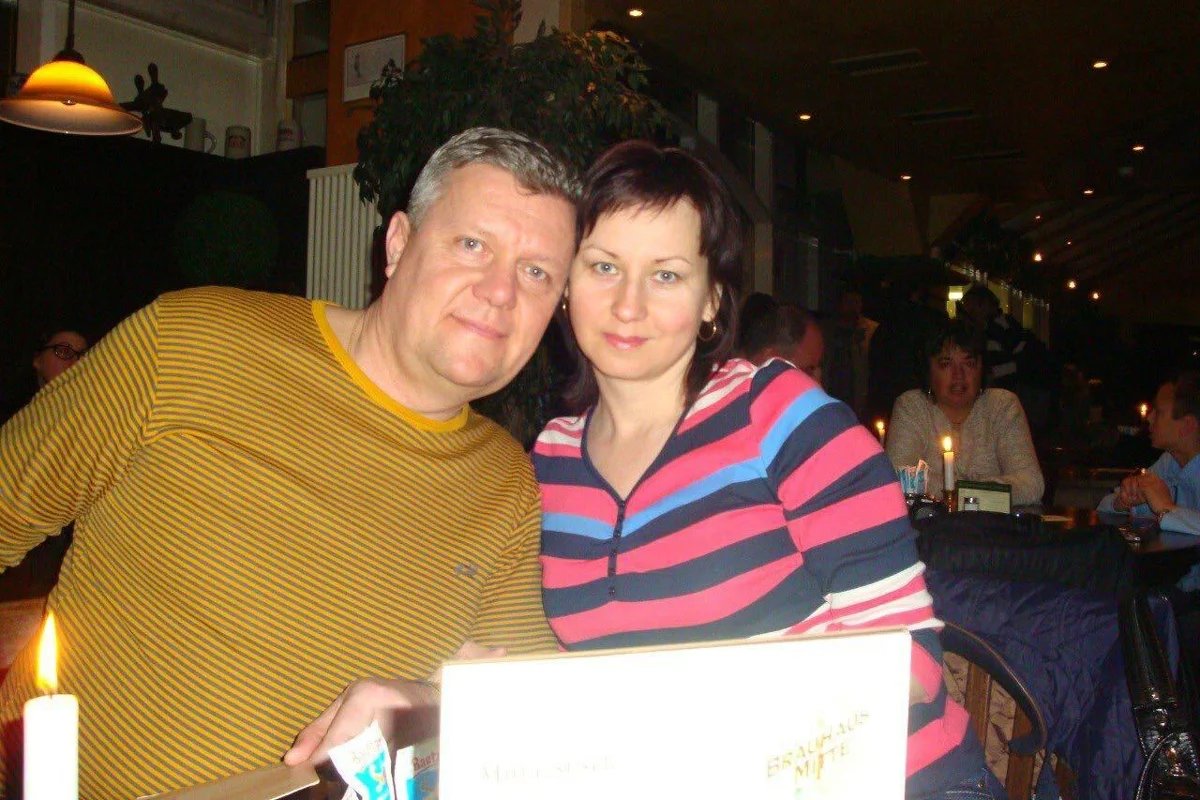
Gennady and Olga in Kyiv. Photo from family archive
Returning to an independent Ukraine, Gennady initially attempted to find work with the Ukrainian military, but after being told that there were too many artillerymen and too little demand, he decided to try his luck in Russia. There, he was able to find work in his field of expertise, and was posted to the Russian Far East, and later to Tajikistan, where his service earned him early retirement. At the age of just 34, having attained the rank of lieutenant colonel, Artemenko left the army and moved to Dzerzhinsk where he became a reservist.
“All our friends and all the neighbours we’d known for at least 10 years dropped us when Gena was arrested.”
“We would go to visit Gena’s mother in Ukraine every year,” Olga says. “My mother-in-law had already buried her husband and daughter and lived for her son.” But in 2014, the war in Donbas began. Artemenko, a Russian citizen, nevertheless had an overseas Ukrainian certificate intended for those of Ukrainian origin who are citizens of other countries.
According to a Ukrainian law signed in 2004, certificate holders enjoy almost all the same rights in Ukraine as citizens.
On one of their annual visits to Ukraine, Olga even managed to track down relatives she had in the country’s northern Chernihiv region. “My cousin and her family know about my situation and are very supportive. The only family I have in Russia are my parents. All our friends and all the neighbours we’d known for at least 10 years dropped us when Gena was arrested,” Olga says.
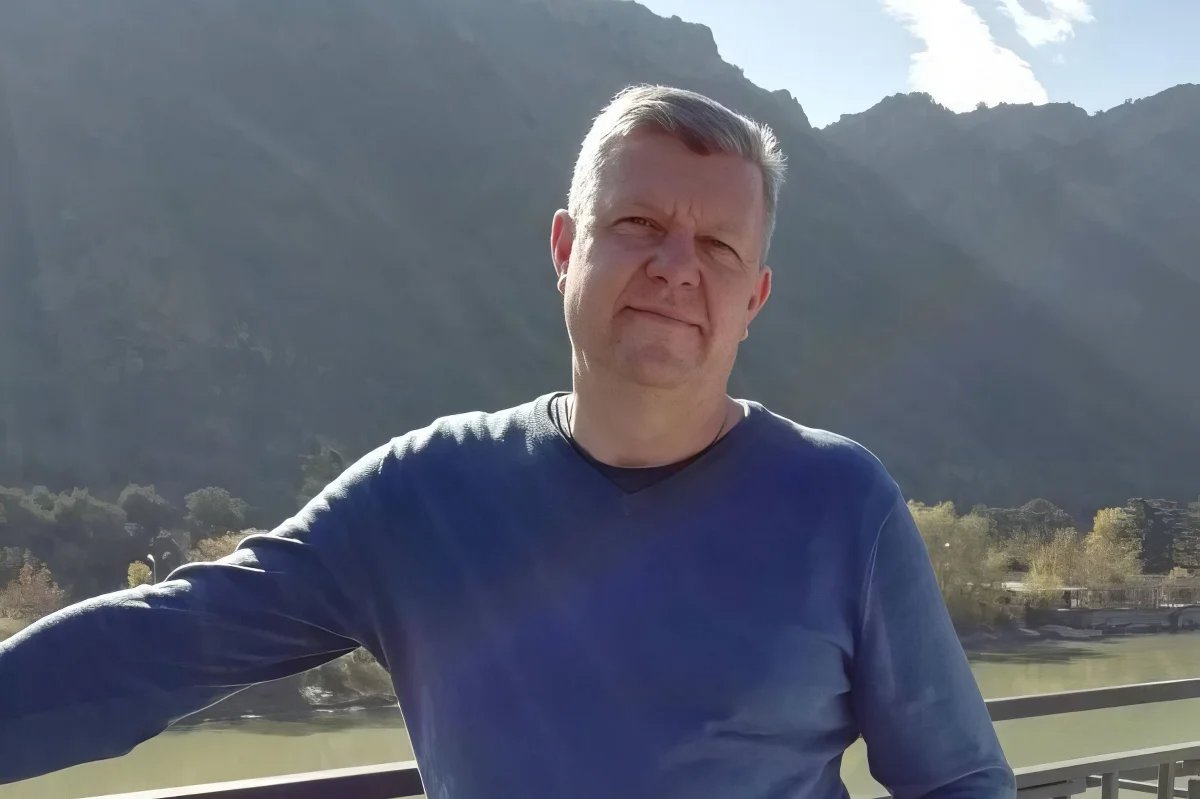
Gennady Artemenko. Photo from family archive
Olga woke up on the morning of 24 February 2022 to find her husband sitting with his head in his hands. When she asked him what had happened, he replied: “They’re bombing Kyiv.” He tried to call his mother, but was unable to get through.
Having spoken to his mother once a week before the full-scale Russian invasion of Ukraine, Gennady “started calling twice a day, in the morning and the evening, on the way to work, and on the way home from work,” Olga recalls, adding, “They always spoke Ukrainian. … Maybe someone reported him?”
Later that year, the pair travelled to Kyrgyzstan to apply for a visa at the Ukrainian Embassy in Bishkek. In 2021, at the height of the pandemic, Gennady had applied to the Ukrainian Migration Service for a residence permit. He worried that closed borders combined with the lockdown might prevent him from helping his seriously ill mother whenever necessary. But Gennady and Olga could never have imagined that it would be war and prison, not quarantine and the pandemic, that would keep them apart.
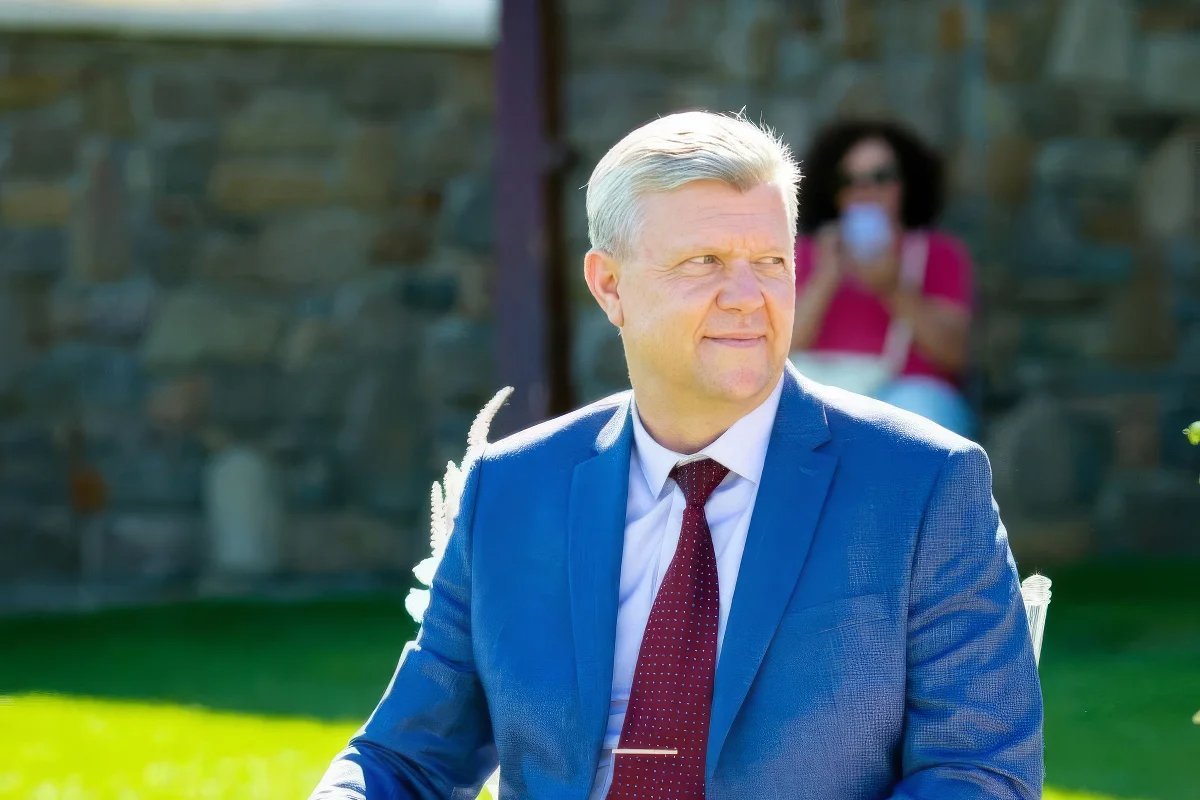
Gennady Artemenko. Photo from family archive
The Artemenkos’ visa application was turned down. According to Olga, the Ukrainian consul was sympathetic to their situation and tried to help, but told them that during wartime it was the Security Service of Ukraine that granted visas, not consuls.
Gennady wrote to the Ukrainian Foreign Ministry, Migration Service and Presidential Administration. On each occasion, he received the same pro-forma answer: “We understand, but there is a war going on. We will consider your case after the war.” However, Artemenko persevered, planning another trip to Kyrgyzstan in 2023, which he was ultimately unable to take, as the Russian intelligence services had come for him by then. On the day of his detention, FSB officers lay in wait for him outside his house, and after beating him up in a van parked around the corner, they searched his home.
They brought him back inside and said they had found 60g of explosives in the kitchen radiator.
“They locked Gena out on the balcony and supposedly searched the apartment. Then they brought him back inside and said they had found 60g of explosives in the kitchen radiator,” Olga recalls.
Olga understood immediately that the charge against Gennady for the “illegal possession of firearms or ammunition by a group of people” had been prepared in advance, and that the explosives had been planted. “The group of people must have been me, my husband and the cat,” Olga says wryly.
The charges for a group of people possessing weapons were eventually dropped, only to be replaced by charges of treason and justifying terrorism.
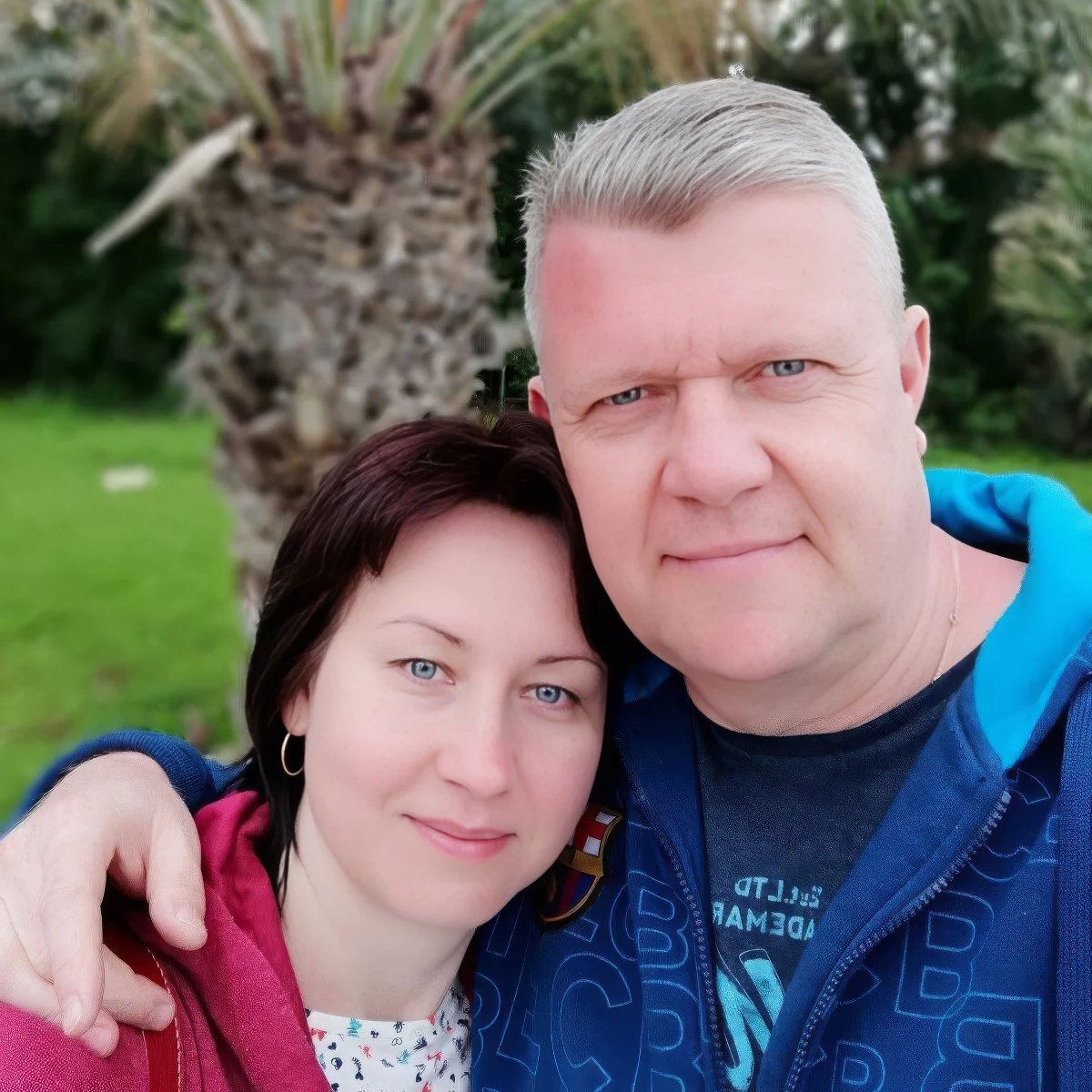
Olga and Gennady. Photo from family archive
“Planting explosives is a standard FSB move,” according to Yevgeny Smirnov, a lawyer with Russian human rights NGO First Department, who knows the Artemenko case. “They needed to place Gennady in detention to have time to open a criminal case on other charges.”
The charges against Artemenko for treason and justifying terrorism were based principally on his membership of Telegram channel Civil Force, which is run by the Crimean Tatar Atesh movement, an underground guerilla group that aims to free Crimea from Russian occupation. The terror charge was added to his rap sheet when the Atesh movement was recognised as a terrorist organisation by the Russian government late last year.
When leaflets similar to a banner frequently used by Atesh began appearing around Dzerzhinsk saying “Let’s stop the war together!” alongside the Atesh logo, Artemenko was accused of posting them due to his subscription to the channel.
As far as the court was concerned, Artemenko was subscribed to the Atesh channel, and that was all the proof it needed.
Investigators looking into the incident claimed to have seen surveillance footage implicating Artemenko, though they also conceded that it hadn’t been sufficiently clear to identify the perpetrator with any certainty. During Artemenko’s trial, his lawyer asked to see the footage, but the court turned down the request, as it did nearly all other requests made by the defence. As far as the court was concerned, Artemenko was subscribed to the Atesh channel, and that was all the proof it needed.
The prosecution also presented the leaflet itself as evidence, though the sample they submitted for expert analysis was oddly pristine, as if it had just been downloaded and printed off, and had never been stuck up anywhere in the city at all. The prosecutors said that a psychological and linguistic analysis had revealed “a desire to stop the war” in conjunction with Atesh.
As if being charged with wanting to stop the war was not absurd enough, Artemenko was also charged with communicating with Atesh members, though no evidence of this was provided, and no correspondence was presented in court.
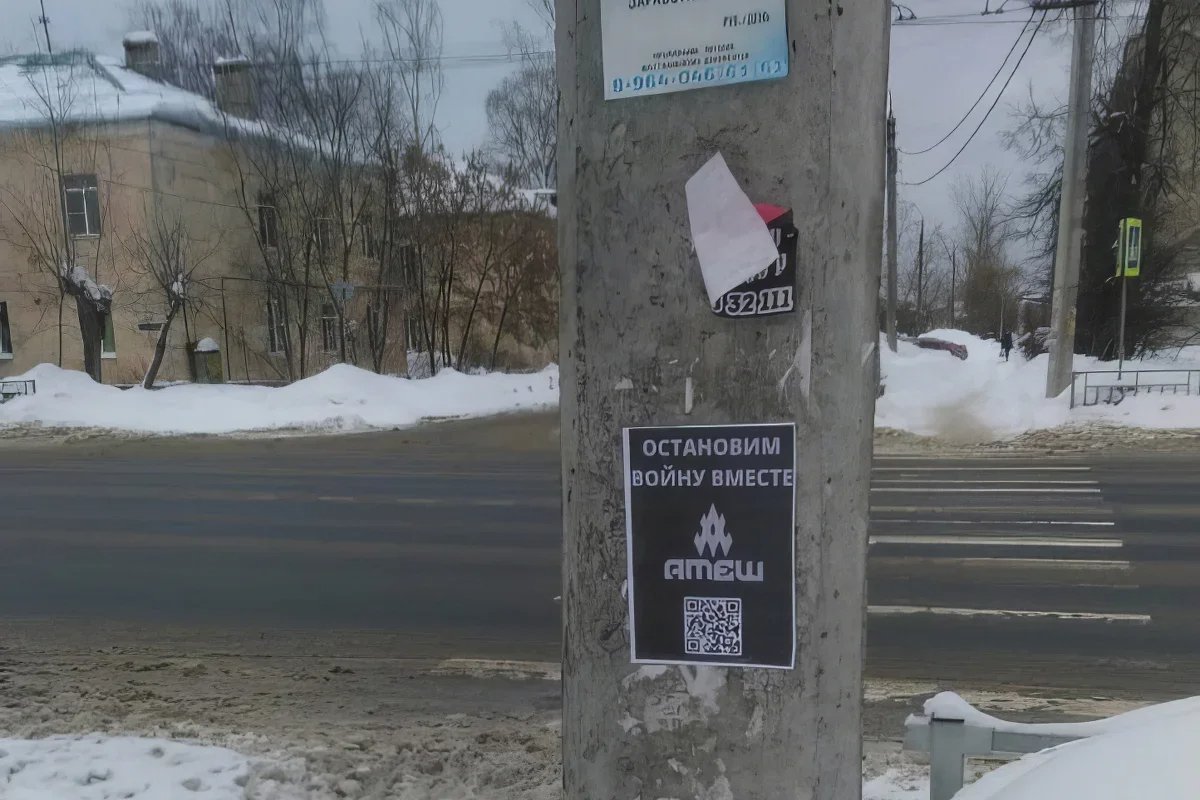
Atesh leaflet in Dzerzhinsk, Russia. Photo: Civil Force / Telegram
The trial lasted for four days, after which the court convicted Artemenko on both counts and handed him a sentence of 18 years in a maximum-security penal colony and a fine of 360,000 rubles (€3,900).
“There have already been over 1,000 treason and espionage cases since the start of the war,” Smirnov told Novaya Gazeta Europe. “The defendants are mostly not public figures, but completely ordinary people who for various reasons at some point or other have found themselves in the FSB’s crosshairs.”
“I believe Gennady Artemenko came under surveillance when he attempted to seek permission to enter Ukraine. … That’s a trigger for the FSB. They might have thought he was planning to commit treason by changing sides,” Smirnov continued.
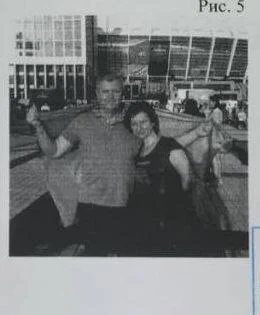
Gennady and Olga in Kyiv, holding a Ukrainian flag. Photo from personal archive, used as case material
Evidence of Artemenko’s anti-Russian position was provided in the form of a 2018 photograph of Gennady and Olga in Kyiv holding a Ukrainian flag. They had taken the trip to celebrate his 50th birthday, and Olga had bought tickets to a concert by Ukrainian rock band Okean Elzy. “We were tired, but loved the concert. It was our favourite band, it was his birthday in Kyiv, and we had so many happy years ahead of us still to look forward to.”
Seven years later and reserve lieutenant colonel Gennady Artemenko is in detention, waiting to be transferred to a maximum-security penal colony. Now 57, he has a long list of serious health issues, including hypertension, hernias and pancreatitis.
Factoring in time served, he will be 73 when he is finally released, if he serves his full term. Olga now lives outside Russia where she works as a nanny and cleaner, but she hopes she’ll soon be allowed to travel to Ukraine to see and reassure her mother-in-law.
To this day, Lydia Vasilyevna knows nothing about the fate of her son, and Olga puts on a brave face every day when she calls her to say: “Gena is fine, Lydia Vasilyevna! He just can’t contact you right now as he’s in a refugee camp. But he will soon. Trust me.”
The Russian government has banned independent media. We were forced to leave our country in order to keep doing our job, telling our readers about what is going on Russia, Ukraine and Europe.
We will continue fighting against warfare and dictatorship. We believe that freedom of speech is the most efficient antidote against tyranny. Support us financially to help us fight for peace and freedom.
By clicking the Support button, you agree to the processing of your personal data.
To cancel a regular donation, please write to [email protected]
VPNovaya
Help Russians and Belarusians Access the Truth
